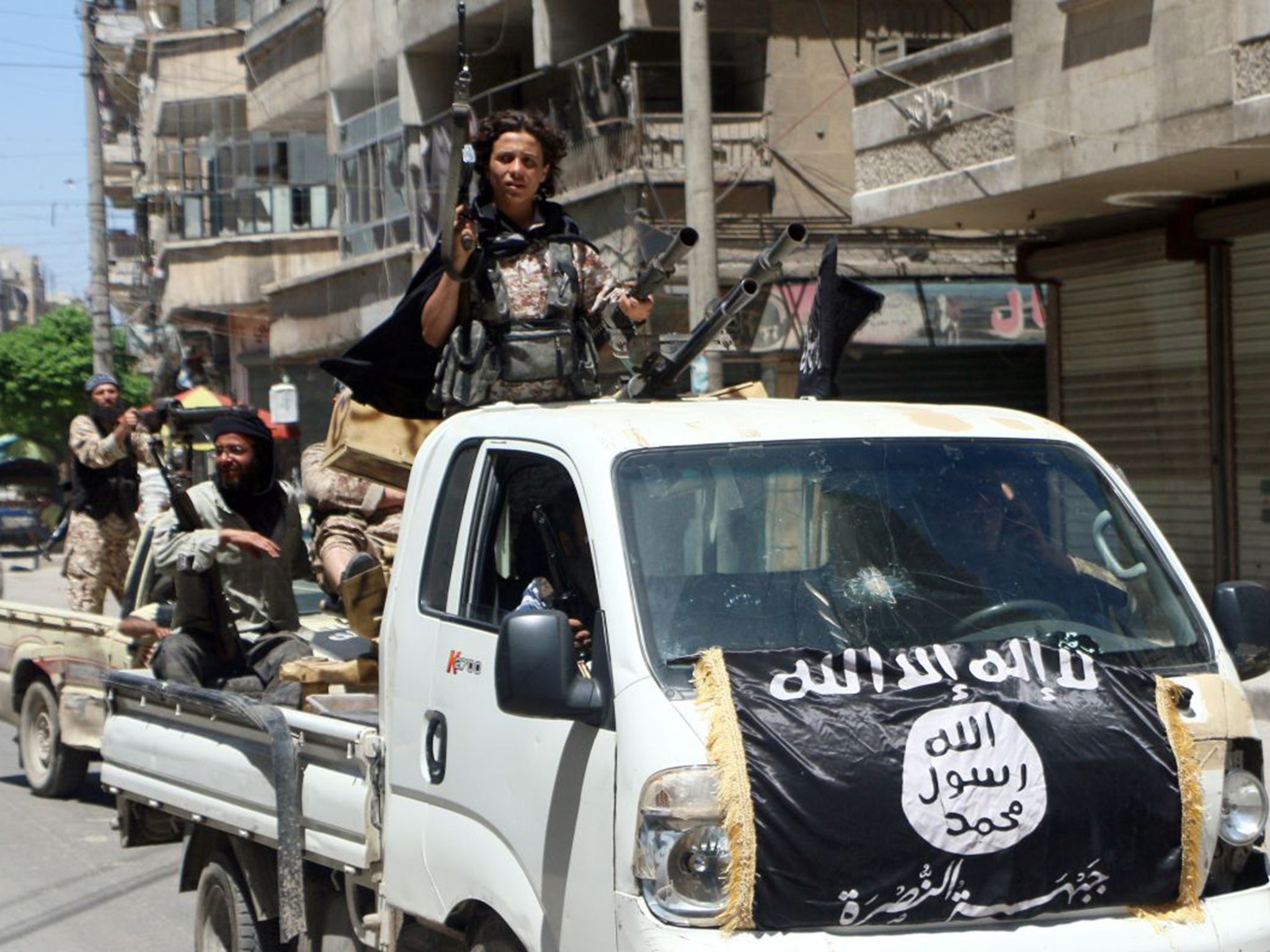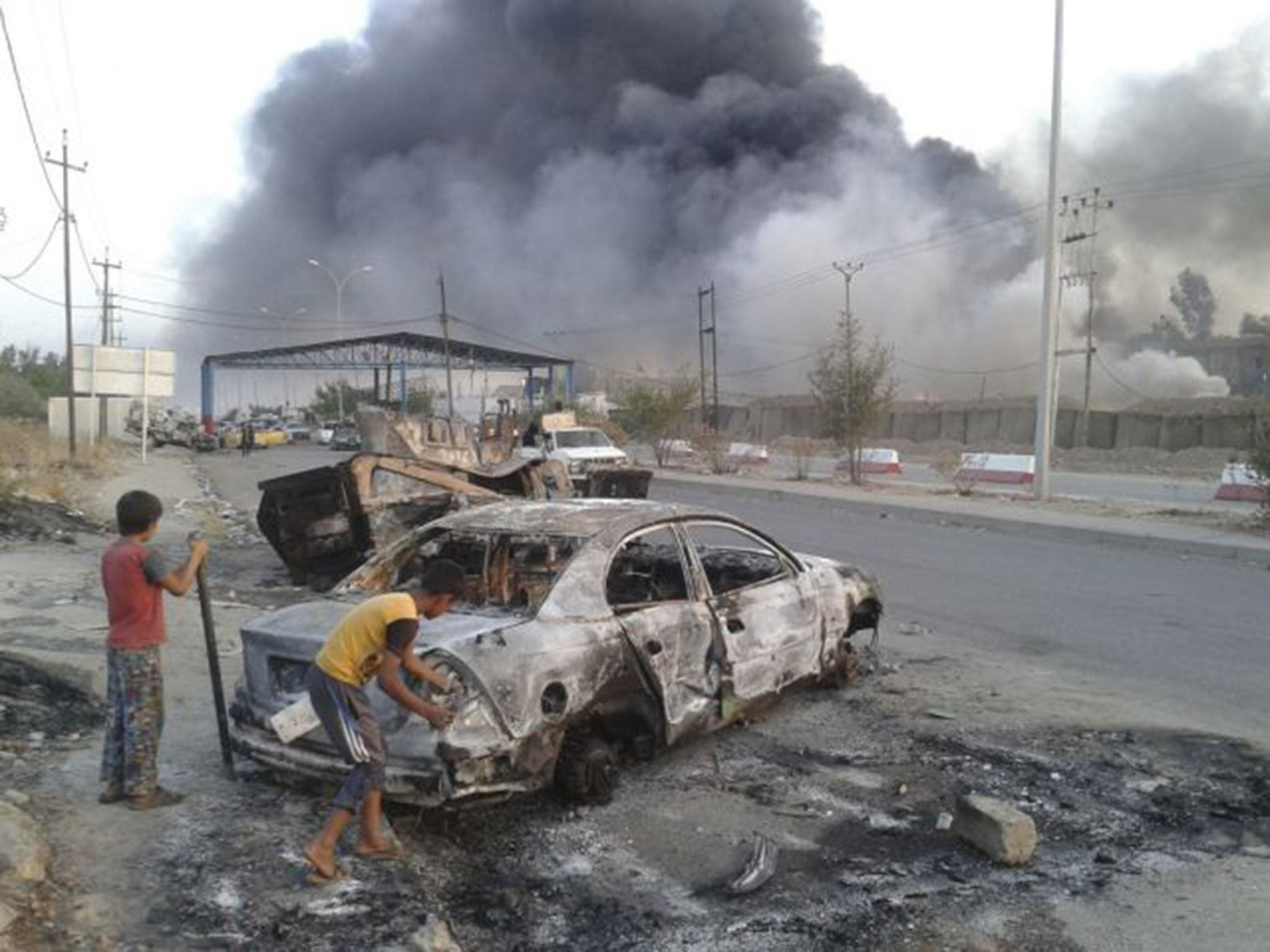Former US military adviser David Kilcullen says there would be no Isis without Iraq invasion
David Kilcullen advised General David Petraus on countering the Iraq insurgency

Your support helps us to tell the story
From reproductive rights to climate change to Big Tech, The Independent is on the ground when the story is developing. Whether it's investigating the financials of Elon Musk's pro-Trump PAC or producing our latest documentary, 'The A Word', which shines a light on the American women fighting for reproductive rights, we know how important it is to parse out the facts from the messaging.
At such a critical moment in US history, we need reporters on the ground. Your donation allows us to keep sending journalists to speak to both sides of the story.
The Independent is trusted by Americans across the entire political spectrum. And unlike many other quality news outlets, we choose not to lock Americans out of our reporting and analysis with paywalls. We believe quality journalism should be available to everyone, paid for by those who can afford it.
Your support makes all the difference.“There would be no Isis if we had not invaded Iraq,” a former military advisor to the US has said while warning that al-Qaeda is also on the rise once more.
David Kilcullen, who was once reprimanded by Condoleezza Rice for calling the Iraq War “f****** stupid”, was seconded to the US Department of Defence in 2004 and fulfilled various roles for the American government and Nato for the next six years.
Formerly a Lieutenant Colonel in the Australian Army, he became America’s “Chief Strategist in the Office of the Coordinator for Counterterrorism” to formulate counter-insurgency strategies in Iraq, Pakistan, Afghanistan, the Horn of Africa and South East Asia.
Now running his own consultancy, he has written a book, Blood Year, charting the rise of Isis and the “failures of the war on terrorism”.
“The environment that we find ourselves in now is almost undeniably worse than it was at the beginning of the war on terror in 2001,” Lt Col Kilcullen told Channel 4 News.
“We have to recognise that a lot of the problem is of our own making.”
He described the 2003 Iraq invasion as the “biggest strategic screw-up since the invasion of Russia by Hitler in 1941” and said the situation was worsened by a failure to “consolidate the political process” during withdrawal eight years later.
“There undeniably would be no Isis if we had not invaded Iraq,” he added, saying the West had also failed to react in a significant way to the violence that started in Syria following the 2011 Arab Spring and the complete breakdown of order in Libya following Nato’s intervention in the same year.
Lt Col Kilcullen said that the so-called Islamic State was not the only terrorist group continuing to thrive, listing a “resurgent al-Qaeda”, the Taliban and a “whole new collection” of Isis affiliates across South East Asia.
“We now face not one but two global terrorist organisations in an environment that’s much less stable and much more fragmented than it was in 2001,” he added.
The military adviser accused the US and European allies of concocting a “recipe for failure” with a mismatch between the goals to obliterate Isis and overthrow Bashar al-Assad, and the resources they are willing to provide.
He called on governments to act to minimise deaths in Syria and elsewhere, even if it means compromising on previously stated aims, and warned that the situation in Afghanistan and Libya was likely to worsen this year.

Isis originates in a group founded by Jordanian extremist Abu Musab al-Zarqawi - Jama’at al-Tawhid w’al-Jihad (the Party of Monotheism and Jihad – which achieved notoriety during the early Iraqi insurgency for an unprecedented wave of suicide bombings and beheadings.
The group pledged allegiance to Osama bin Laden in 2004 and changed its name to al-Qaeda in Iraq before Zarqawi was killed in 2006, when his members emerged with other insurgent groups to form the Islamic State of Iraq.
Its initial leaders, Abu Omar al-Baghdadi and Abu Ayyub al-Masri were killed in a joint US-Iraqi operation in 2010, clearing the way for the current “caliph”, Abu Bakr al-Baghdadi.
Still affiliated with al-Qaeda, it spread into Syria following the outbreak of the country’s civil war in 2011 under the name Jabhat al-Nusra, which still exists as a rival group.
But in-fighting between the Iraqi and Syrian factions after a botched merger attempt in 2013 and the group, known as Islamic State of Iraq and the Levant (Isil) or Islamic State of Iraq and Syria (Isis) was cut off by al-Qaeda.

Its membership had been growing over years of prison raids freeing Islamist militants, while leadership was strengthened with the addition of military and intelligence officers who served under Saddam Hussein.
Isis already held several towns and swathes of territory across Iraq and Syria but did not come to international attention until it captured Mosul, sparking the declaration of a state of emergency by the Iraqi government as soldiers fled their posts.
The group’s subsequent advance and international expansion, marked by waves of brutal executions and terror attacks, has been well-documented.
As well as international bombing campaigns in Iraq and Syria, the US-led coalition is attempting to throttle Isis’ revenue streams and resources.
Join our commenting forum
Join thought-provoking conversations, follow other Independent readers and see their replies
Comments